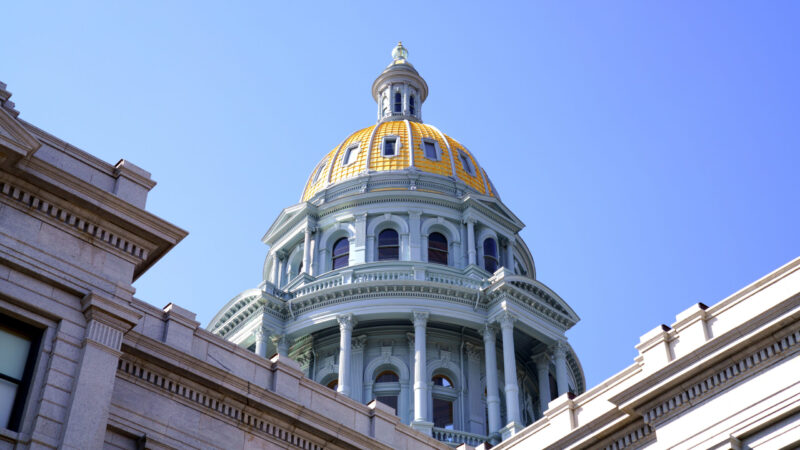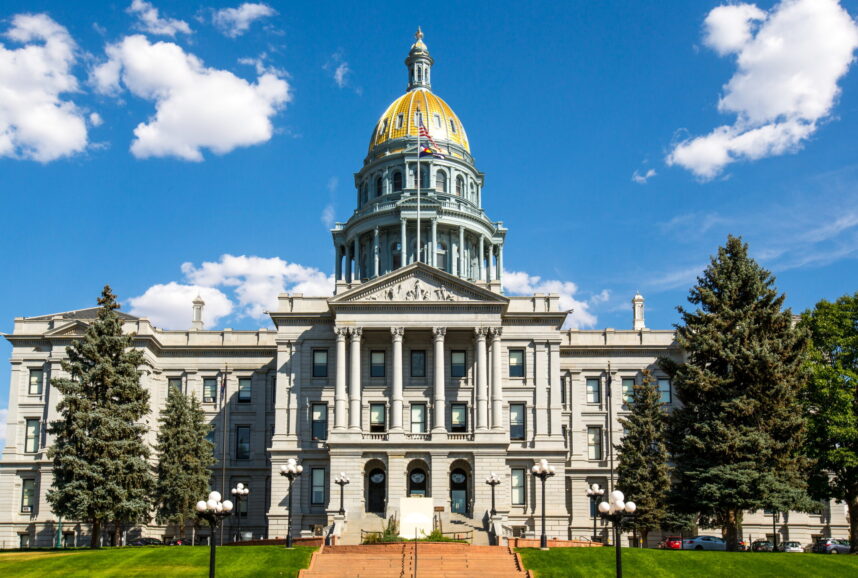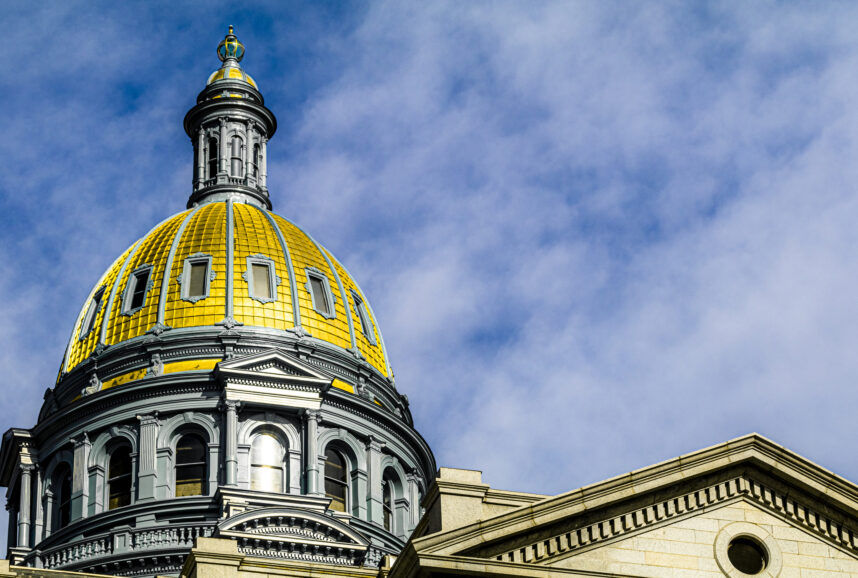The Colorado General Assembly wrapped up its legislative work in May, but there’s still plenty of activity happening at the State Capitol.
Every year in between legislative sessions, PERA appears before various legislative committees that oversee PERA and its financial health. It’s an important part of the ongoing review and oversight of PERA and an opportunity to engage with the legislators who can have a direct impact on PERA and its members.
While lawmakers won’t be introducing bills between now and January, they may begin work on new PERA-related legislation they intend to introduce in the next session.
Here’s a look at what to expect this summer and into the fall.
RELATED: What Roles Do the General Assembly and Board Play at PERA?
Pension Review Subcommittee
The state legislature created the Pension Review Subcommittee in 2018. It’s a subcommittee of the Pension Review Commission, which oversees PERA and the state’s police and firefighter pensions. The Pension Review Subcommittee is charged with reviewing PERA’s financial health and making recommendations to the larger Commission. The Subcommittee comprises four state lawmakers as well as 10 appointed members of the general public with financial experience or knowledge.
The Subcommittee held its first meeting of the year on July 17. Interim Executive Director and Chief Investment Officer Amy C. McGarrity and Public and Government Affairs Manager Michael Steppat gave the Subcommittee an update on PERA’s 2022 financial results and answered questions from Subcommittee members.
The Subcommittee may continue to hold meetings throughout the interim period, with PERA to provide information and answer questions as needed.
Legislative Audit Committee
The Legislative Audit Committee is next up, with a meeting scheduled for Aug. 7.
Every year, the state hires an independent auditor to audit PERA’s financial data and internal controls of the most recent Annual Comprehensive Financial Report. The outside auditor will present its findings at the Legislative Audit Committee’s meeting. PERA staff will join PERA’s actuarial consultants at the meeting to discuss the plan’s finances and answer any questions.
Pension Review Commission
PERA also appears before the Pension Review Commission in between legislative sessions. The Commission has the responsibility of overseeing PERA and proposing legislation that could affect the plan and benefits. For example, the Pension Review Commission drafted bills in recent years to make up the state’s missed 2020 payment of $225 million to PERA.
In addition to the various interim oversight committees, the legislature’s Joint Budget Committee and House and Senate Finance Committees hold annual meetings to discuss PERA’s finances. Those meetings are expected to take place prior to and immediately following the start of the next General Assembly, respectively.
PERA On The Issues will be following the various interim activities and reporting on any noteworthy developments. Be sure to subscribe to our biweekly newsletter to stay updated





PERA Desperately Needs Oversight, But Not Under Legislators!
PERA Board Trustees have a fiduciary duty, per, 24-51-207, C.R.S., “… (2)(a) As fiduciaries, such trustees shall carry out their functions solely in the interest of the members and benefit recipients and for the exclusive purpose of providing benefits and defraying reasonable expenses incurred in performing such duties… .”
The above “standard of conduct” requires trustees work to enhance benefits and be good stewards of trust funds and the retirement system for PERA members. Trustees do NOT have the same obligation to lawmakers, employers, investment firms, or officers and employees of PERA Board & Staff (PERA B.S.), beyond lowering employee contributions and enhancing benefits for all members. Even gubernatorial appointments cannot place political interests above PERA members without violating their fiduciary duty. Failing to guard beneficiaries’ interests while promoting financial gain for others is malfeasance, but trustees seem blind to political and financial conflicts of interests, obscured by the sleight of hand of PERA investing staff (PIS), who are supposed to be directed by trustees’ strategic asset allocations. Albeit trustees haven’t altered their strategy in years, except to slightly modify allocation ranges before the pandemic. PIS missed a pandemic era buying opportunity, professing they don’t time the market(?), and trustees allowed losses by ignoring a long-publicized campaign by the fed to raise rates, beginning in March of 2022!
The Annual Comprehensive Financial Report (ACFR) spins fiduciary duty as a philosophy or policy with the single goal of pension assets being valued at 120% of liabilities, by 2048; and presumably ensures PIS’ own job security in the meantime; but at the expense of members, especially retirees who may die without seeing an annual increase adjusted for inflation. PERA B.S. also spins the Great Recession as a lingering existential threat, only slowed by a 2018 law (SB18-200) requiring so-called shared sacrifice among pension participants that denies retirees a fair COLA under the cliché of, “stay the course until 2048” (when, if the fund is not better off, those who managed it will be gone). Any under-funding is because the legislature doesn’t make appropriations or adequate employer contributions to cover promises made to public servants (promises to compensate for lost Social Security benefits and lower pay than the private sector). The Great Recession of ’08, the pandemic, higher interest rates, are just excuses in the spirit of never waste a crisis to cover up a long running heist by the legislature to raid PERA and circumvent TABOR.
Laws often tie the hands of what PERA B.S. can do, but a couple of things PIS and Trustees still control are secret private equity deals in the defined benefit (DB) plan and options offered in the (DC) plans. These DB and DC plan shortcomings profit hedge fund managers and subsidize stadium naming rights, over benefiting members. Private equity fees and returns need to be examined, along with providing a no-cost money market and low-cost ETF choice for DC plans (the Capital Preservation Fund, the most conservative option managed by Empower yields less than half of a bank CD, but charges a flat monthly fee, plus .03%, for the privilege of parking money). Existing policy and plans hardly demonstrate a commitment to members and look more like sweetheart deals.
It’s not just PERA B.S., but lawmakers talking out of both sides of their mouth with, “fiscal responsibility,” while continuing their spendthrift ways, blind to unfunded mandates adding to PERA’s liabilities; like when state labor costs were reduced through early retirements and lower service credit purchase rates; or most recently the largesse of SB23-163, classifying Wildlife and Park Officers as State Troopers for PERA purposes. Department of Natural Resources (DNR) workers should be properly classified, but the law didn’t appropriate anything to PERA to cover earlier retirements that come with trooper-classifications. DNR will pay the additional employer contribution, for higher trooper-rates, from fees charged for licenses, passes, and permits to avoid being considered a tax increase under TABOR. Trooper-rate payroll deductions, and eligibility to retire earlier, begins July 1, 2023; but “on or after January 1, 2011,” is a hire date used in identifying those eligible for trooper-status; and is further limited by PERA’s existing prorating policy, or “weighting,” of trooper/non-trooper contributions, for reduced service credit (early) retirement and benefit increases (for those with both non-trooper and trooper work). SB23-163 passed, without objection by PERA B.S., as “weighting” purportedly holds the pension fund harmless. However, lower non-trooper contributions prior to this July aren’t the issue (as “weighting” prorates the different contribution rates), but it’s the extra early retirements from the state division over the next quarter century that’s the problem (for a 120% pension funding level by 2048?). PERA will absorb early retirement costs for those hired since 2011, and eligible after June of 2023, for a long time. It’s unclear why officers hired before 2011, aren’t treated the same, but that would burden the trust fund even more. Unbelievably, with no actual dollar amount cited, the only implied cost to PERA in the fiscal note for SB23-163, concerned disability retirements which are immediately available, based on current trooper-classified employment. Otherwise, there’s no appropriation, or a cost estimate, to PERA for future liabilities because no one knows who’ll retire and when; but PERA will now pay out more benefits earlier; and “weighting” benefit calculations are still based on a guess of what’s actuarially required.
Ultimately, legislators and PERA B.S. don’t care if the guesses are correct, or if there’re more early retirements, because if estimates are wrong then future contributions rates rise and annual benefit increases vanish automatically under SB18-200. Although DNR passes employer contributions to “fee-payers” instead of “taxpayers,” it’s retirees who pay a stealth PERA tax when benefits are not adjusted for inflation, regardless of the contribution rates. Lower employer contribution rates, being in arrears, and making workers and retirees make up the shortage, leaves more in the General fund for legislators to spend. Interestingly, “weighting” exists in regulation, rather than statute; and it’s really the last job classification, years of service, and the last 5 years of pay that determines a pension amount; but if PERA B.S. wants to propagate the accounting alchemy of “weighting,” then that’s probably all lawmakers need to hear. Others in search of truth should just follow the money!
The above observations may result in threats of more cuts based on dubious claims of a fiscal crisis, and the state pleading poverty or claiming they make appropriate employer contributions. Trustees can defer to PIS to defend their actions (and inaction) under the banner, “Fund solvency by 2048,” which hurts retirees in the meantime as many will die without an increase reflecting inflation. Sadly, anti-government types and lobbyists will likely butt-in on what is purely a labor contract matter to pit taxpayers against public servants in order to maintain the wage theft and elder abuse that’s become standard operating procedure for PERA B.S. and many politicians.
It’s no surprise PERA B.S. avoids their fiduciary duty, but it’s incredible how well the blame game between lawmakers and trustees works, while PERA PIS pulls the wool over the eyes of beneficiaries, the public, and law enforcement (not trooper-type law enforcement, but the prosecutorial variety, that should investigate and stop this scam). In closing, PERA and the General Assembly in my opinion need prosecutorial, not legislative, oversight!
I just received my 1% raise in my July Pera check.
Are any of the finance committees looking into a cola way of increasing our pensions. A lot of Pera retirees will end up on Welfare or Food stamps if this will not be corrected in the ver very near future, like next week fficial session.
Many PERA retirees will need to go back work during inflationary times. In addition to food stamps, if a PERA benefit drops below a certain point due to inflation, then the retiree can choose the Colorado Old Age Pension Plan (OAP) which receives an annual COLA similar to Soc Sec. However, the state legislature may need to pass legislation. Just a thought.
Hi Conney… Guy Santo here (don’t know if the PERA people will answer you, but I’ll give you my opinion ;-o). The bottom line, based on all the TABOR refunds over the last 30 years, is the state has always had lots of money, with which to adequately fund PERA and pay COLAs. So, the primary folks to contact are your state house representative and senator and the governor. I suggest always being polite but be relentless in phoning, emailing, and writing them, their staff and all of the members of the Pension Subcommittee and Pension Committee. Google “Colorado General Assembly Pension Committee,” to find names and emails…over the next two months and continuing through the election and next year’s legislative session. PERA retirees have to make a concerted effort to make one contact a week or every ten days, or at least try. Trust me if a hundred citizens contacted a politician on the same issue in a month they’ d be running around in circles trying to figure out what’s going on and do something about it.
P.S. – Funding state pensions is an expenditure exempt from TABOR
I remember after they raided our 3.5% salary increases and lowered them to 2.5% in 2010. We were told that would fix it. Then they gave Greg Smith the head of the state’s retirement system a 3 percent salary increase on Tuesday – his second raise in just over a year – bringing his salary to nearly $406,000 in 2017. Then went back and sniveled to the legislators again lowering our raises even further. I want to than k you GUI for all your efforts at staying in top of all of this.
You are very knowledgeable in PERA. I was very impressed. We are fighting a PERA appeal before the board on 8/18. When my husband went to retire we were not informed about being able to leave our granddaughter as his beneficiary instead of the spouse. I found out when my employer gave me all those options last year. I then contacted PERA to see if that was an option. It was and the administrator that I talked to said, “well they probably assumed the spouse would be the beneficiary since your husband was married.” I do not see anywhere a direction if you don’t list your spouse, do you need the spouse to sign off? It is a well hidden option that they do not want you to use due to the taxing effect listing someone younger vs. a spouse would have on the trust. We do not have a lawyer and not very versed in trying to fight this with the legal backing PERA has. Reading what you wrote I thought you might be able to help me. We are standing on the grounds that PERA staff does not administer the plan correctly. Thanks and great job!
Thanks for you vote of confidence in my “expertise,” but if I said anything construed as advice, then PERA would probably have their lawyers go after me for unauthorized practice (of law). However, you bring up interesting issues (tax wise, you want someone in a lower tax bracket to receive money), but with respect to impacting the pension fund, that sounds like we’re talking about an “option” upon death for continued monthly benefit payments (presumably at a lower rate but nevertheless ongoing). I can’t tell if an “option” is what’s really at issue here verses balance against unpaid total contributions upon death… If we’re talking “options” which would continue after your husband’s (heaven forbid) death, then I’m unqualified to even speculate on what your “benefit options” are, if an election was actually made by your husband. Perhaps there are time frames to rescind, rules for changing, a willingness to repay the difference in benefits plus interest, life events that could permit an option change, e.g., divorce, marriage, ?, etc.). If you already have an appeal, you might check PERA’s website for their rules on selecting and changing benefit options along with trying to make a case for why an incorrect option was originally selected and to be allowed a change. I’ve had enough experience with torts, administrative law, and appeals to know these things drive average citizens crazy just trying to understand the process, and sometimes just writing (or saying out-loud) what the problem is, helps focus one’s thoughts and actions. Sorry, but “Good luck” with the appeal is about all I can offer…
P.S. – As an aside, I think that someone should start a “PERA column” to share experiences (to augment PERA’s materials, staff, or lack of an ombudsperson); but please post a comment on what ultimately happens; and maybe facebook page “The PERA SITE” will start an advice-type column?
P.P.S. – Depending on who your statehouse representatives are, you might contact them for help, if you think there was something unfair or wrong with the way PERA presented “benefit options,” in your husband’s specific case or through routine practice.
Retired state employees are being marginalized. Rising inflation, real estate taxes, house insurance and myriad of other rising costs are severely affecting PERA members. COLA legislation should be introduced in the legislature that provides a meaningful cost of living adjustment for retirees. For all practical purposes, we now have a fixed pension that is steadily being eroded. That was not what we promised after 30 years of service!
You hit the nail on the head with this statement.
Compare South Dakota to Colorado, South Dakota employees and the state
pay both Social Security and a State pension. PERA receipt could get a
COLA every year under SS. Just compare the two systems see how the numbers would work out.
AUGUST 7th, – Mark Your Calendars…
Haven’t been punished enough? Listen to the state legislative audit committee hearing on Monday (Aug. 7, 2023). PERA’s report is scheduled to start at 10:30 a.m. It’s an opportunity to hear how uninformed and dull most of the participants sound (that’s the scary part, not PERA’s financial condition).
Here’s a link if “Colorado General Assembly” in your search engine doesn’t bring up the page where you tab down to “Committee” & then “Audit,” etc. https://leg.colorado.gov/content/legislative-audits
The total dollar theft for the average pension as of 7/31/23 is $96,260. This is the total dollars earned for retirement that the state has stolen since breaking the pension contracts in 2010. Ninety six thousand dollars of earn pension money you never got over the 13 years since the great pension heist if you were an average retire. How much pension money has been stolen is about 25 billion.